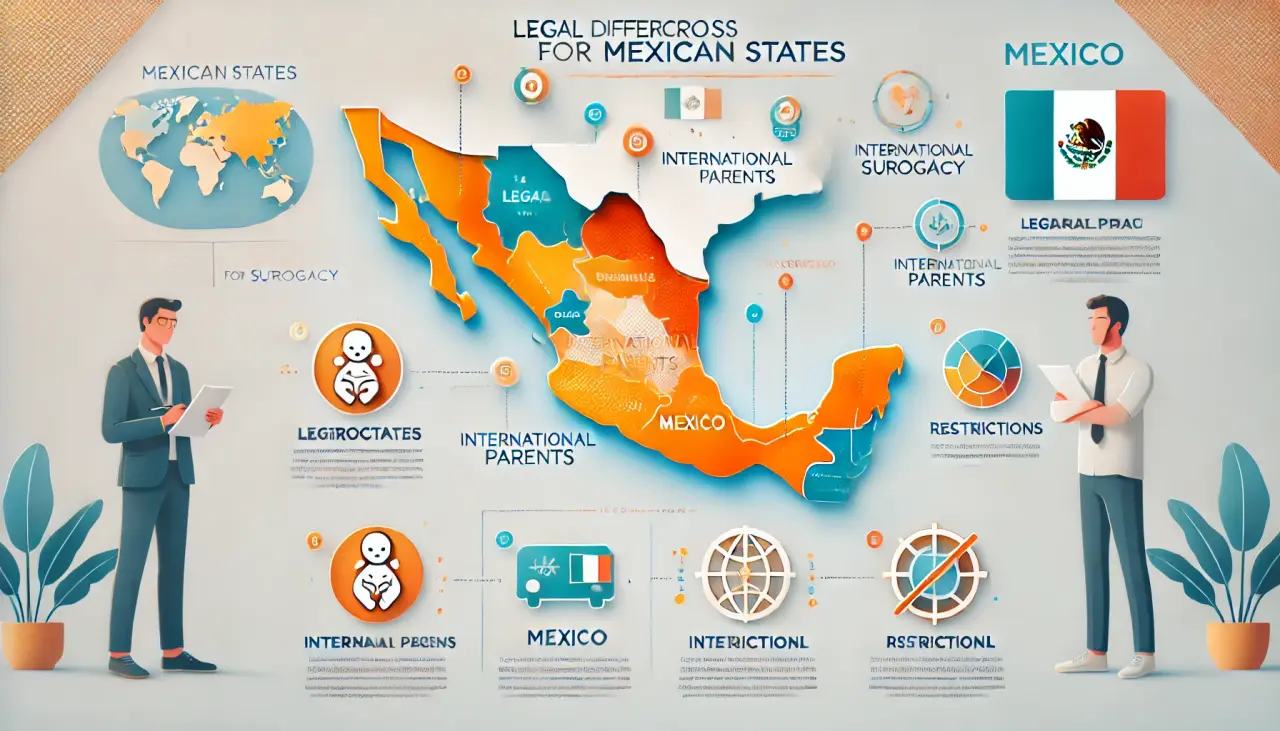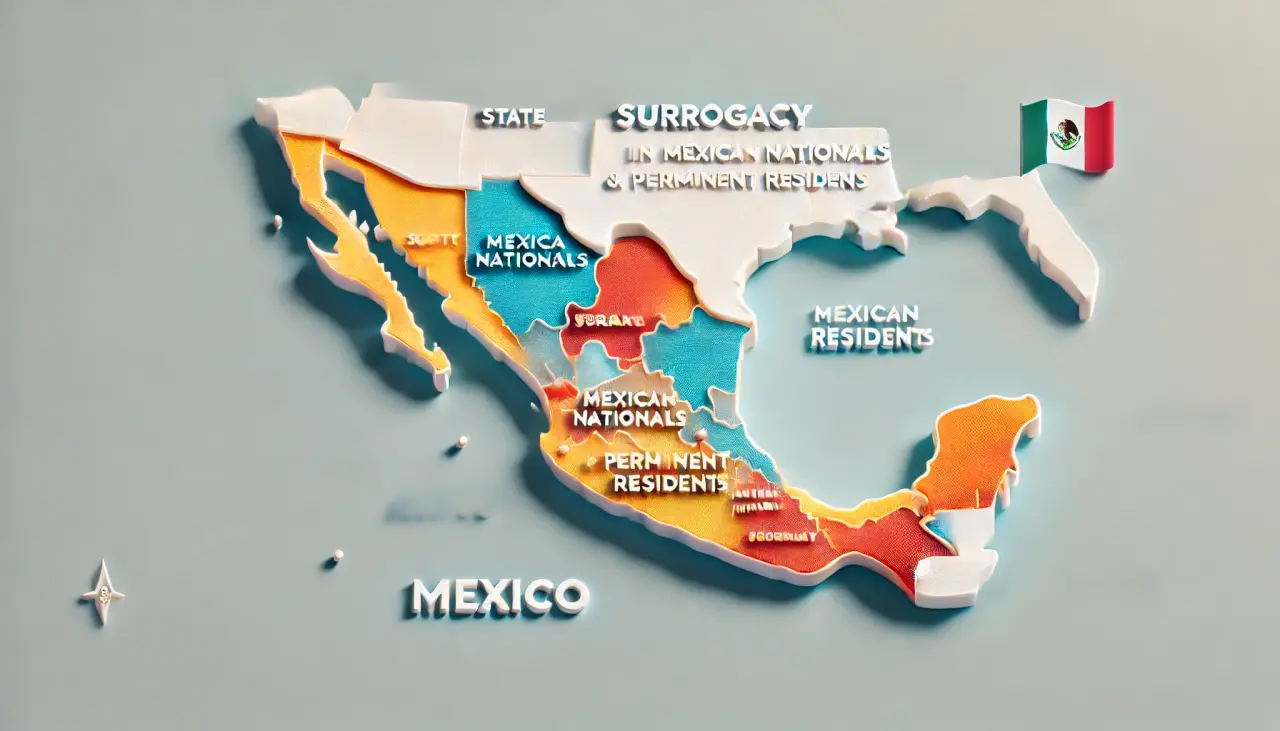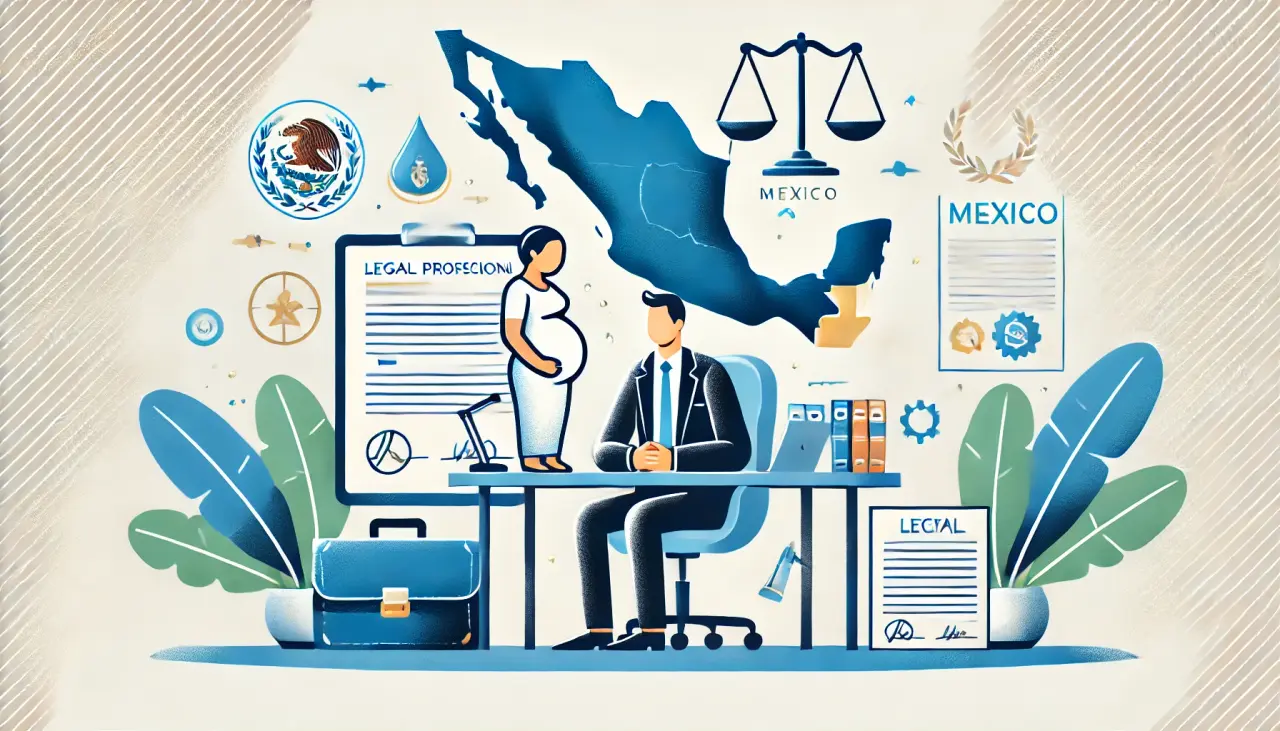
Surrogacy in Mexico: Legal Issues, Parental Rights, and Risks for International Parents
Meta Description: “Explore the latest surrogacy laws in Mexico, including risks, legal issues, and parental rights for international intended parents. Understand the legal landscape before starting your surrogacy journey.”
Understanding Surrogacy Laws in Mexico
Surrogacy in Mexico has undergone significant changes in recent years, particularly affecting international intended parents. If you’re considering surrogacy in Mexico, it’s crucial to understand the current surrogacy laws in Mexico for international parents to avoid legal complications and ensure clear parental rights.
Before embarking on a surrogacy journey in Mexico, it’s vital to understand the legal environment, as surrogacy laws in Mexico vary by state, and the regulations have changed over time. For many years, the state of Tabasco was a popular destination for foreign intended parents. However, since 2016, Mexican surrogacy laws have restricted surrogacy to Mexican nationals and permanent residents, leaving many international parents looking for alternative solutions.

Surrogacy Process and Risks in Mexico
For international parents seeking surrogacy services in Mexico, the surrogacy process in Mexico may seem complex. It’s important to weigh the risks of surrogacy in Mexico carefully. These risks include the potential for legal disputes, complications in parental rights, and changes in surrogacy laws.
Foreign parents must be aware that while surrogacy may be legally permissible in some Mexican states, international intended parents can face significant challenges. These can range from the difficulty in finding qualified surrogacy agencies to navigating the legal risks associated with Mexican surrogacy law changes. It’s crucial to consult with experienced professionals and have a clear surrogacy agreement in place to protect your rights.

Legal Disputes and Parental Rights for International Parents
One of the biggest concerns for international parents considering surrogacy in Mexico is ensuring that their parental rights are clearly defined. Since surrogacy in Mexico is often governed by state legislation, international intended parents may face legal disputes, particularly regarding custody and the legal recognition of parental rights once the child is born.
For foreign intended parents, understanding the local legal landscape is essential to ensure that you have a valid surrogacy contract and that your rights are protected. In some cases, parents may have to go through a lengthy legal process to have their parental rights recognized in Mexico.

Surrogacy for Mexican Nationals and Residents
Surrogacy is still legal in Mexico for Mexican nationals and permanent residents. The laws governing surrogacy for Mexican citizens and residents differ significantly from those affecting international parents. In contrast to international intended parents, Mexican nationals can still access surrogacy services in states like Tabasco, where the surrogacy process is well-established.
If you are a Mexican national or a permanent resident, the process can be more straightforward. However, it’s essential to have a solid understanding of your legal rights and ensure that your surrogacy agreement is legally binding in your state of residence.

Legal Complications for Foreign Intended Parents
While surrogacy may seem like a viable option for foreign couples or individuals, the legal environment in Mexico is complex and constantly evolving. The most significant legal complication for international parents is the restriction of surrogacy to Mexican nationals and permanent residents in many states, which has been in place since 2016.
The surrogacy laws in Mexico for international parents are constantly changing, making it important to stay updated on current regulations. To avoid legal disputes, foreign parents should work closely with an experienced legal team familiar with Mexican surrogacy law to guide them through the process.

What Foreign Parents Need to Know About Surrogacy in Mexico
If you are an international intended parent considering surrogacy in Mexico, it is essential to be well-informed about the current legal landscape. Mexican surrogacy laws restrict surrogacy to Mexican nationals in many states, including Tabasco, which was once a popular destination for foreign parents.
To protect your parental rights, it’s important to understand the full surrogacy process in Mexico, from finding a qualified surrogacy agency to ensuring that your surrogacy agreement is legally binding. Always consult with legal professionals who specialize in international surrogacy to navigate the complexities of Mexican surrogacy law.
Conclusion
Surrogacy in Mexico offers a potential solution for intended parents, but the legal complexities are significant. Understanding surrogacy risks, parental rights, and legal issues is essential for international parents. Whether you are a Mexican national or an international intended parent, seeking legal advice and understanding the surrogacy process can help you make informed decisions about your family-building journey.